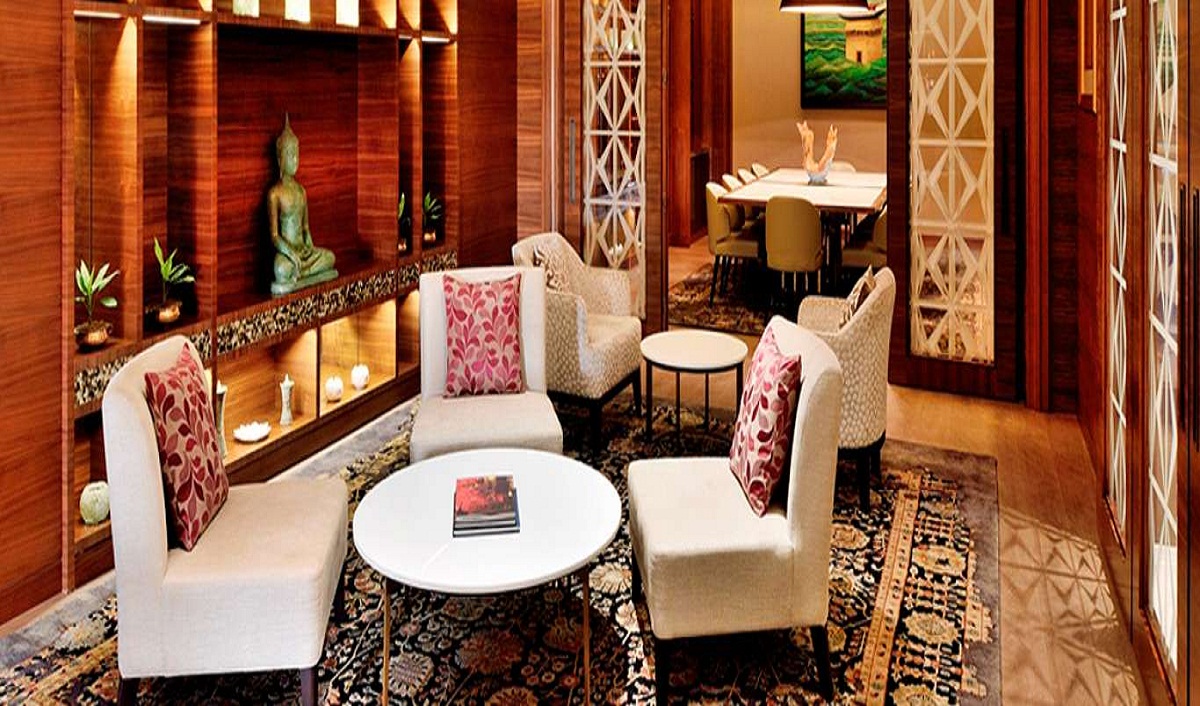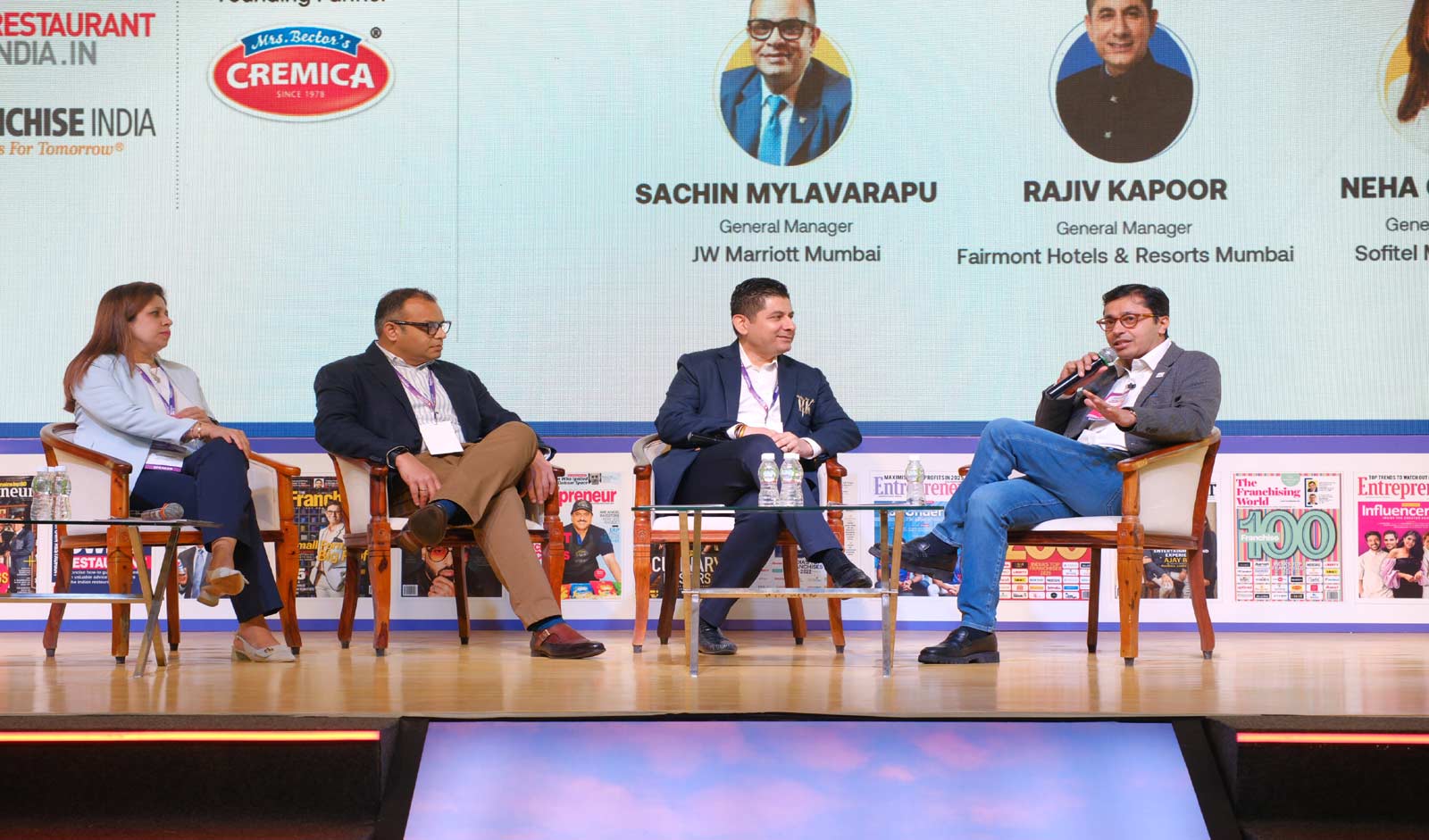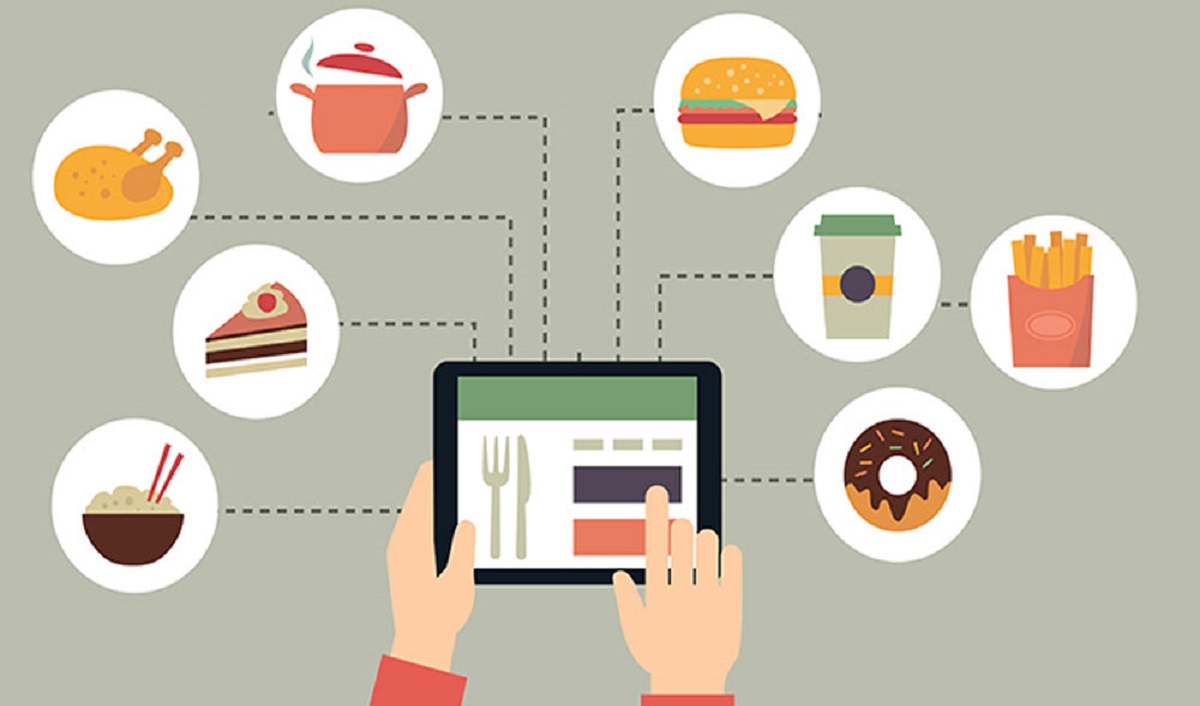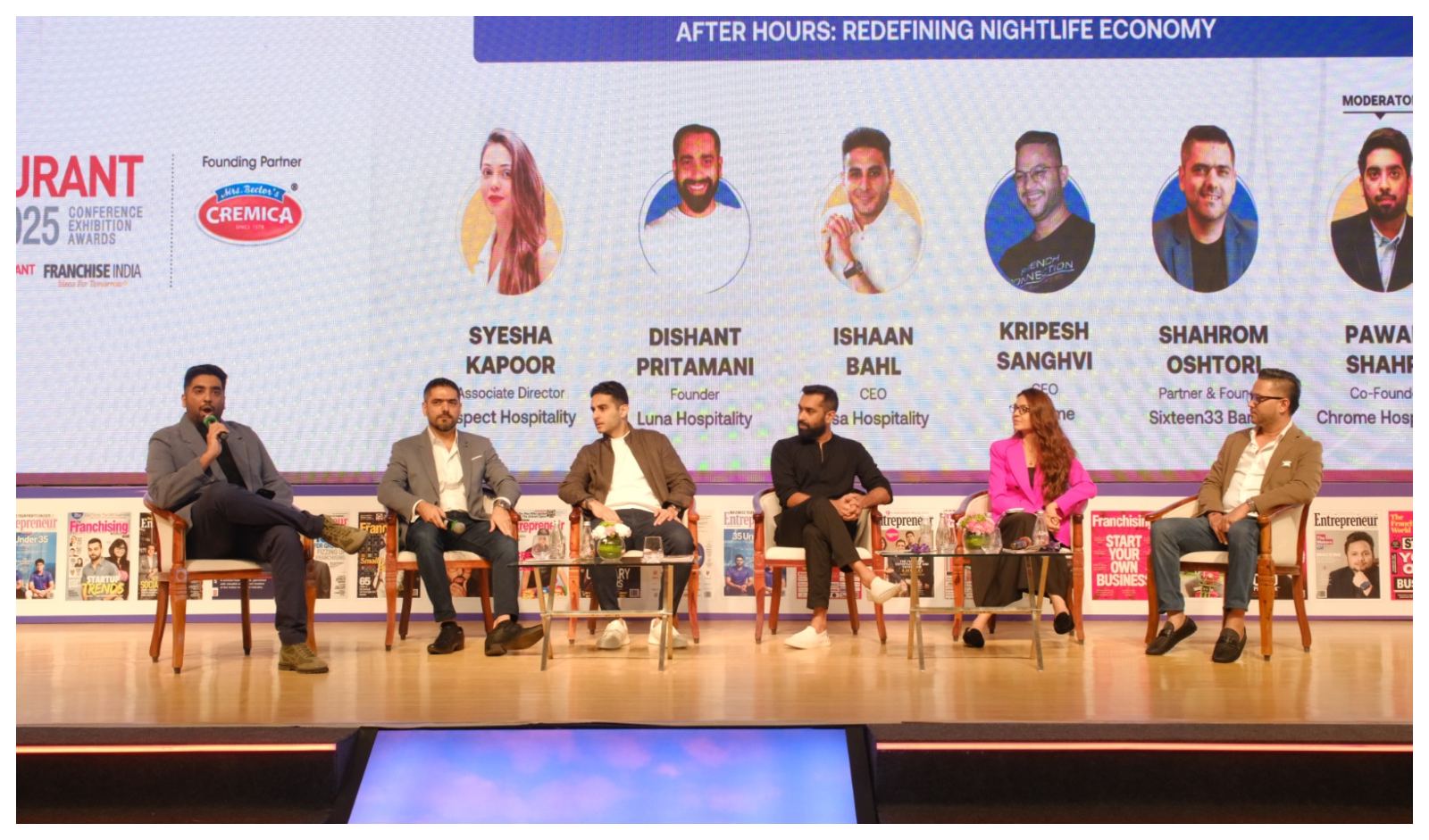
In the wake of Shanti Hospitality Management Services announcing an ambitious plan to expand its portfolio of hotels, its director, Sunil Ghadiok, says the optimism about industry growth is well-placed
Shanti Hospitality Management Services, which manages hotels and is associated with leading brands such as Hyatt, Marriott and Accor Hotels, is planning to expand its portfolio by taking more managerial contracts of hotels in the western and southern parts of the country. Elaborating on this expansion plan, Sunil Ghadiok, Director, Shanti Hospitality Management Services, said “We are now focusing on the western region of India. We are established in the north, but we are going to concentrate on asset-light initiatives through third-party contracts. Though we have our own properties there, we would like more third-party contracts in the west and south.”
The company also sees opportunities in places like Vijaywada, West Bengal and North East regions of the country. “We are establishing ourselves in a place like Vijaywada primarily because it’s bordering the new capital coming up there. We also see a lot of potential in the eastern region, particularly Bengal. We strongly believe that there is going to be a lot of business moving into West Bengal and North East India for tourism. So we are looking out there as well,” he added.
Shanti Hospitality Management Services is a subsidiary company of Shanti Hospitality Group. It operates and manages six hotels across India with more than 650 keys. Talking about the company’s global portfolio, Ghadiok said “We are focusing on India at the moment. Nepal of course as a close neighbour comes under our purview and if we find something in Sri Lanka we will definitely look at it, purely due to proximity and because it will be easy to manage.” Commenting on the growth of the hospitality sector, Ghadiok said, “We are driven by domestic consumption more than what we were relying on earlier. About 50 years ago when we had the Open Sky Policy, we had an Air India flying all over; today we have multiple airlines.”
Infrastructure Triggers Growth
“Connectivity has also grown. Now we have UDAAN that is taking us into sectors where at one time you either drove or went by train. More airports are opening up. So, with all this happening, the growth of the hospitality industry is bound to happen. It’s all a part of the overall infrastructure development and I think the government over a period of time has realised that hospitality has huge potential in terms of earning foreign exchange,” he added. Speaking about the potential of markets in Tier II and III cities, Ghadiok said, “The magic comes from Tier II and II regions. Tier 1 cities are next to impossible to build more because of the exorbitant real estate prices.”
“However, in Tier II and III cities if you are able to visualize well, that’s where all the business is. For instance, just about 10 years ago, a place like Haridwar couldn’t sustain a branded property. Today, I can tell you confidently that a city like Haridwar can sustain more than a branded property. So, these cities are actually growing and that’s what’s wonderful to see because it means that all of India is actually growing. Everyone is commenting about the big economic slowdown but I personally haven’t seen it happening,” he added. Shanti Hospitality owns hotels like Four Points by Sheraton in New Delhi and Hyatt Regency in Amritsar and manages Four Points by Sheraton in Dehradun.

In recent years, everything has become experience-driven. While convenience and location still matter when choosing a hotel, guests increasingly decide based on the experiences offered—whether for families, solo travelers, or business guests. At the same time, sustainability has emerged as a major, consciously adopted trend shaping these choices.
With a market size of USD 24.23 Billion, the Indian hospitality market is growing at 13.37% CAGR, and is targeting to reach USD 45.39 by 2030.
Technology at the Front
Technology is rapidly reshaping the hotel industry, pushing innovation to the very forefront of guest experience and operations. From AI-powered personalization to seamless contactless services, hotels are leveraging digital tools to meet evolving traveller expectations. Automation, smart devices, and data analytics are driving efficiency while elevating comfort. Together, these advancements are redefining what modern hospitality looks and feels like.
Another major shift that hoteliers are embracing—and that GMs like Neha Chhabra of Sofitel Mumbai strongly support—is the rise of AI and tech-driven solutions.
“The goal isn’t to make hospitality robotic, but to make operations smoother and life easier. Restaurants have long been manpower- and cost-heavy, but with the right blend of technology and thoughtful hotel design, we can optimise processes and monetise spaces far more effectively,” she shared.
At the same time, hotels have repurposed existing hotel spaces to create new revenue-generating avenues—a great example of focusing on total revenue per square foot. It’s no longer just about rooms; it’s about building a diverse mix of offerings across the asset.
Hotels as F&B Destinations
In recent years, hotels have begun redefining their role in the traveller’s experience, evolving from simple places of rest into vibrant culinary destinations. More than ever, properties are recognizing the opportunity to draw in not only their in-house guests but also the wider community through distinctive food and beverage concepts.
“At JW, this shift has meant placing a stronger emphasis on creating restaurants and bars that stand on their own—experiences that invite guests to linger, explore, and return, even when they’re not staying overnight. It’s a transformation driven by thoughtful storytelling, elevated cuisine, and a commitment to crafting spaces that feel just as welcoming to locals as they do to travellers,” shared Sachin Mylavarapu, GM, JW Marriott Mumbai Sahar.
Traditionally, large hotels operated with extensive F&B inventories—multiple specialty restaurants, a lounge, a bar, even a deli or cake shop. “Over time, especially during COVID, we consolidated this footprint, converting underperforming outlets into event spaces. Then came Instagram and a wave of social influence, which pushed us to reimagine our restaurants as destination experiences. Today, we’ve entered a new phase—one that prioritises delivering high-quality, consistent F&B offerings that truly elevate the hotel’s identity,” added Mylavarapu.
Partnering for Growth
As we look at how hotels are evolving, it feels like we’re entering a new chapter—one where the reinvention of F&B continues to shape what the next generation of hotels will look like. They are also looking at franchise as a model, seeking to pair their own brand with well-known restaurant franchises, creating a combined ecosystem under one roof.
“At Fairmont, our aim is to seamlessly integrate our restaurants into large-scale catering. With eight restaurants in the hotel, imagine hosting an event in our banquet space and having the flavours and experiences of all eight brought directly to your celebration. That’s the level of culinary immersion we’re creating,” pointed Rajiv Kapoor, GM, Fairmount Hotels & Resorts Mumbai by adding that they’re not just offering a standard banqueting experience—they’re elevating it by bringing true restaurant-style dining into the banquet itself. “At the same time, we’re proud to collaborate with leading franchise restaurants and local culinary entrepreneurs. Recently, we hosted an event where partners ranging from Ritu Dalmia to Indian Accent and several other renowned brands were part of our catering line-up at the hotel.”
At the end of the day, it’s all about collaboration and creating memorable guest experiences. Hotels these days remain versatile and agile in bringing diverse culinary expressions together, because when people visit a city, they want to taste its local flavour and discover what makes it unique.

As we move closer to the much awaited budget for 2024, the hospitality industry is expecting some major shifts in policies and financial aids that will help in its growth.
Addressing the GST incongruity is paramount for fostering equitable growth within the hospitality sector and the sector is eagerly waiting for the same as the year looks promising for the industry. “We strongly urge for parity in GST rates between standalone restaurants (5%) and hotel restaurants (18%), recognizing that this disparity adversely impacts our industry. A harmonized tax structure will undeniably contribute to a more resilient and competitive landscape within the hospitality and tourism sectors,” said Tejus Jose, Director of Operations, ibis and ibis Styles India.
The sector not only look for a budget that not only acknowledges the significance of the hospitality industry in bolstering India's global appeal but also takes concrete steps to create a conducive environment for sustainable growth and competition.
Sharing his on the same, Vishal Anand, Founder, Moonshine Food Ventures addressed the need for scaling tourism to new heights. “The expectations from the upcoming budget are there as they have been for over the years. Especially for the F&B sector. With an increased focus on scaling tourism to new heights, there is an expectation for allowances, subsidies & steps to push the F&B sector as well,” he further added.
"Lifestyle health problems in India are increasing and unhealthy food is a major contributor to this issue. The government needs to take cognizance of the problem soon and put in place solutions so that long term effects of such unhealthy foods can be contained.
Healthy foods and beverage options are available, however, 74% of people in India find it unaffordable, as per the ‘State of Food Security and Nutrition in the World’ (SOFI) 2023 report by UN. Sufficient tax breaks and financial incentives for healthy foods and beverages as well as boost in spending towards awareness of healthy eating will go a long way in solving this problem,” commented Abhishek Sarwate, CEO, Utopian Smoothies.
Not only this, in the dawn of the new financial year, the hospitality (specially QSR) sector stands resilient, yet burdened by the inequity of the current TAX structure and hence brands and businesses are expecting a low GST rate.
“The imposition of a 5% GST without availing the Input Tax Credit (ITC) deprives our industry of rightful benefits, resulting in a scenario where both businesses and patrons bear the brunt of the full cost. From raw material to the end product and fixed expenses like rental, utility etc. the hospitality sector diligently pays an 18% GST without reaping the advantages of ITC. As we embark on this fiscal journey, we call upon the government to consider extending ITC benefits against the 5% GST,” pointed Gagan Anand, Founder and Director, Scuzo Ice ‘O’ Magic, India’s first Live popsicle concept and dessert café.
The experts also believed that this thoughtful adjustment will not only alleviate the financial strain on the industry but also empower businesses to provide enhanced services and experiences. Let this new financial year herald a fair and symbiotic relationship between the hospitality sector and the taxation system, fostering growth and prosperity for all, they shared.
Commenting on the same, Vikrant Batra of Dhansoo Café mentioned, “Restaurant industry is one of the most significant contributors to the national economy and one of the highest employment creators in India. The key request that we want to highlight in this budget is the need for reinstating the Input Tax Credit (ITC) under the Goods and Services Tax (GST) for the restaurant industry. The sector is currently subjected to a 5% GST rate without the benefit of ITC, and if this can be certainly looked upon, it will be of great help.”

As consumer preferences in the realm of pleasure and entertainment continue to evolve, the hospitality industry is experiencing a significant transformation driven by the desire for superior customer experiences and convenience. Redefining the very essence of luxury, the hospitality sector is enthusiastically embracing novel trends and innovations in an effort to enhance the ultimate consumer journey.
The Indian hospitality industry is expected to be worth $23.50 billion in 2023 and is anticipated to grow at a compound annual growth rate (CAGR) of 4.73% to reach $29.61 billion by 2028, according to a report by Mordor Intelligence.
Amongst the multitude of trends and innovations propelling the hospitality industry's growth, one prominent innovation taking center stage is smart elevators and escalators, elevating the ultimate guest experience. Evolving beyond being mere conveyances, these vertical transportation solutions have become vital in shaping guest experiences and improving operational efficiency. Innovations such as contactless elevator buttons and destination control systems not only provide comfort and convenience to guests but also create a welcoming and inclusive atmosphere within hospitality spaces.
Unveiling technology trends in hospitality transportation
Automated destination control systems: Facilitating the movement of guests within an establishment, vertical transportation plays an indispensable role. Making guest mobility more convenient and allowing access to numerous facilities existing in an establishment, the emergence of automated destination control systems has revolutionized access to hospitality spaces. By optimizing passenger flow and classifying passengers according to their destination floor, these systems minimize stops and cut down on waiting times, making for quicker and more effective travel.
Interactive panels: The time when elevators involved a single button for visitors to traverse their ways is long behind. Technological advancements have ushered in interactive panels with touch screens and displays, allowing guests to easily locate their desired destinations. From displaying information on elevator speed, location, and capacity, to presenting safety features such as emergency call buttons and fire alarms and and even entertainment options, like music or video players, interactive panels enhance the commuting experience of visitors.
Contactless buttons: With health and hygiene becoming a priority for modern-day consumers, especially due to the deadly pandemic, the need for safer vertical travel has arisen. Consequently, this has led to the emergence of AI-facilitated contactless elevator buttons that offer a hygienic means of transportation by enabling users to call out a lift without making physical touch, thereby reducing the possibility of transferring bacteria, germs, and illnesses. This technology ensures effortless travel, particularly for visitors with disabilities, making hospitality spaces more inclusive.
Modern structure and design: In response to the growing trend of conscious consumerism, individuals are largely gravitating towards sustainable options. Consequently, this has led to the emergence of green elevators, featuring environmentally conscious materials and regenerative drives, encouraging green vertical transportation. In addition to structure, the design of elevators and escalators has also undergone a substantial evolution. Going beyond the traditional escalators, glass lifts incorporating technology-enabled features such as fingerprint scanners, biometric security tools, and personalized lighting schemes enhance the travel journey of visitors. As a result, this provides hospitality facilities with the opportunity to ace their aesthetic game, in addition to ensuring a sophisticated and stylish appearance, contributing to a more delightful experience.
Advanced vertical transportation solutions: Enhancing guest experiences
Luxurious experiences have become a necessity for modern-day individuals. As a result, hospitality spaces are going above and beyond by adopting technologies and innovations to guarantee outstanding experiences for contemporary consumers. Amidst other innovations, the integration of smart elevators and escalators equipped with technology-enabled features has enabled hospitality businesses to create more welcoming, efficient, and extraordinary experiences for their visitors, establishing new industry standards.
Playing an imperative role in ensuring a remarkable experience, vertical transportation outfitted with destination control systems, contactless elevator buttons, and interactive panels has enabled businesses operating in the hospitality sector to target greater operational efficiency while facilitating improved consumer experience. Moreover, as technology continues to advance, the future looks bright with the arrival of cutting-edge innovations that will further enhance the functionality and safety of vertical transportation systems, providing the hospitality sector with exciting opportunities to reshape customer service and convenience.

Director of Operations, Novotel Mumbai Juhu Beach Mar 23, 2023 / 7 MIN READ
The hospitality industry is an integral component of the global economy, contributing significantly to its overall success. It encompasses a wide range of services including lodging, food and beverage service, event planning, tourism, and recreation. In addition to providing employment opportunities for millions around the world, it also serves as an important source of revenue for many countries. The sector has experienced tremendous growth over recent years due in part to increased globalization and improved technology which have made it easier than ever before for people to travel both domestically and internationally. This growth has resulted in greater investment into the industry by governments and private businesses alike, helping to create jobs while stimulating economic activity within local communities. As such, the hospitality industry plays a vital role in driving economic development on both local and global scales.
As the hospitality industry continues to grow, it is essential for businesses to prioritize responsible practices. This includes ensuring that guests are safe and treated with respect, as well as taking steps to reduce environmental impact. Practices such as reducing food waste and using energy-efficient equipment can help protect our planet while also helping businesses save money in the long run. Additionally, providing staff members with proper training on safety protocols and customer service etiquette will ensure a pleasant experience for both customers and employees alike. By committing to responsible hospitality practices, companies can make a positive impact on their community and environment alike.
Developing and implementing a comprehensive, industry-wide sustainability plan that covers all aspects of hospitality operations is essential to protect the environment and conserve resources. This should include measures such as reducing energy use in hotels through more efficient lighting, heating/cooling systems, and appliances; increasing recycling efforts; minimizing water usage by installing low-flow fixtures; improving air quality with better ventilation systems; eliminating single-use plastics from hotel amenities; using eco-friendly cleaning products for housekeeping duties; and creating educational programs for staff on green practices. With these initiatives in place, the hospitality industry can make meaningful progress towards achieving its sustainability goals.
One of the key benefits of responsible hospitality is its potential to boost profits. By adopting sustainable practices, businesses can reduce their operating costs by cutting down on waste and energy consumption, increase operational efficiency through improved resource management, and differentiate themselves from competitors in a crowded marketplace. In addition, sustainable practices can attract a growing market of eco-conscious consumers who are willing to pay a premium for environmentally friendly products and services as they become more aware of the importance of sustainability in our society. Implementing these changes may require an initial investment but it has been proven time and again that such investments pay off in the long run with increased customer loyalty and higher profit margins.
In conclusion, responsible hospitality is a game-changer for the industry, offering a range of benefits that extend far beyond just businesses. Consumers can benefit from better value and quality services while also feeling good about supporting companies that are making an effort to be more sustainable. Moreover, the environment and local communities will benefit from reduced emissions, waste reduction initiatives, and other sustainability efforts. By adopting sustainable practices and promoting ethical and socially responsible behaviour, hospitality businesses can differentiate themselves from competitors in a meaningful way; not only increasing profits but also creating positive impacts on their surrounding environment.

The hospitality industry is ever-evolving, constantly changing, and combating ups and downs throughout the year. In addition, the pandemic effectively stopped the hotel business for an extended period of time; as a result, the sector had to adjust to the work-from-home era that followed the COVID outbreak. While the growth in the revenue of the hotel industry has not been able to catch up to the pre-pandemic levels, it is still growing gradually and consistently. The sector has likewise modified itself to technological changes to keep up with modern times and the rest of the industry. This advancement has been one of the factors that has enabled dynamic pricing and revenue growth.
Even though weekend trips and destination holidays have become more popular now than ever before, with a lot of people venturing out on long weekends to relax, and destination weddings are back on the top of the list of many, there is still an atmosphere of uncertainty amongst a few. Here are some key trends that are slowly modernising the hotel industry and have been observed to alter people’s perceptions about vacationing again.
Staycations: Many hotels are engaging in the practise of offering staycations, particularly to the working class, enticing them with the advantage of a work from anywhere model and the scenery of the wilderness. The demand for staycations has turned into a catalyst for rapid revenue growth over short periods of time.
Going digital: Technological advancements like automation of the working system and going digital has gained popularity in the hospitality industry. Going over and above, a few hotels even provide virtual tours for potential customers to try and gain an understanding of their trip and the authenticity of the hotel’s aesthetics. Functionality and design are taken into consideration too.
Home delivery: One of the greatest guest demands till date has been for meals to be delivered right to their doorstep. Not just the local dishes are being tried out; people are also experimenting with several other meals, cuisines and locations. And neither is the industry avoiding this demand. This prompted them to partner with logistics and food delivery companies or set up their own shipping department. This has also led to more employment opportunities, which further drives revenue growth and increases the ROI.
Sustainable vacations: Many guests now give careful consideration to where they stay while on a vacation and how the hotels are run. They are focusing on environment-friendly modes of transportation, mindful food consumption and green, climate-safe spaces. Consumers are making many of their travel selections based on this important aspect, and many are even willing to pay more for sustainable housing. Average Annual Return has also gone up as a result of this.
Social Media and PR: The industry has understood and rightfully harnessed the potential and power of social media and PR. They are aware that today’s audience expects transparency and accountability from hotels on the conditions of how the staff works and how they are treated. And the ideal instrument for that is social media. Social media is also widely used to creatively attract prospective customers, engage with them, and answer their queries. Building a strong communications and social media team that takes care of the hotel's reputation, fosters customer loyalty, and acts quickly in a time of crisis has also become crucial for the development and success of the sector.
The hotel industry has battled a lot of hiccups during these trying times, but they have eventually triumphed as everything has returned to normal and customers are excited to step out of the house again. The need is just to keep up with these trends, progress and adapt to modern changes.

The past two years have been brutal for the Hospitality Industry. Between covid variants and lockdowns, the business has been hit repeatedly. Foreign visitors are daunted by the idea of getting stranded in a new country, business travellers have adjusted to zoom calls, and many travellers are petrified of infection from public spaces. Millions of hotel rooms lie unoccupied, and hoteliers have struggled even in the anticipated high season.
We witnessed glimpses of revenge travel towards the end of 2021, but the rapid onset of Omicron pushed people back into their homes. With the New Normal, we are seemingly farther away from the good old days with every passing year. In times like these, it becomes critical for businesses to discover what’s next, creating an edge over competitors, and allowing them to not just survive, but thrive.
TURNING TO TECH
Unless you spent 2021 under a rock, you would have definitely heard the word “NFT” at some point. Yes, the year Blockchain became accessible to mainstream audiences, crypto became a legit investment option, and Cryptopunk NFTs became the new Rolex. Over the past year, we witnessed many NFT launches by celebrities, brands and businesses. It hasn’t mattered what industry they come from - entertainment, sports, tech, or FMCG. NFTs are proving to be the latest way for companies to show that they are in sync with the times, and capable of adapting to the latest technology.
So, what are NFTs & how do they affect you?
NFT stands for Non-Fungible Token, a unique digital asset that represents ownership on the blockchain. Anything digital can be an NFT - from artworks to music, to land deeds or entry tickets. From the moment of creation, the NFT becomes recorded in the permanent ledger of the blockchain, and it’s ownership can be traced in every transaction. This creates transparency and authenticity, reducing fraud and allowing for rightful ownership.
The Non-Fungible aspect means any NFT cannot be replaced or exchanged with another. Each NFT carries an individual code - so even if you have two copies of the same NFT, they can be identified with their respective code. This makes NFTs different from cryptocurrency tokens (which are fungible and can be interchangeable), as well as, as digital art (where copies cannot be authenticated).
NFTs are a true revolution in bringing a complex technology to global audiences in such a simplified manner. Every industry is now gearing up to leverage NFTs to grow their business, and the Hospitality Industry is not lagging behind.
NFT IN HOSPITALITY
The Power of Blockchain is such that it entitles every business, big or small, to leverage technology with equal opportunity. With NFTs coming into the limelight, the traditional hospitality market is ripe for disruption - and it needn’t commence from the big players. From the announcement of first NFT restaurant opening in 2023 to hotels and restaurant brands accepting crypto currencies, one can use NFTs to promote, elevate and grow your business. What matters more is how early you adapt to this tech advancement. The first-mover advantage will be significant as always, and you can almost compare this time to the Social Media boom of 2010’s.
When Instagram first came in, not many could understand the utility of business accounts. But today, Insta-savvy hotels and restaurants are creating a revolution in the space. We are at a similar cusp in technology today with NFTs. Businesses that learn to harness this technology will move ahead of competition, and expand their business to new verticals.
EXPLORING NFTS FOR YOUR BUSINESS
If you are convinced to jump onto the NFT bandwagon, let’s talk about some tangible use-cases for NFTs for the Hospitality sector. As of now, most NFTs we see in the market are collectibles - whether they are graphical artworks, celebrity pictures, or brand photography. They are based on aspirational value, and create an investment opportunity for collectors. Now ofcourse, you can also go down the Collectibles route by photographing your property, creating artworks of your rooms etc, but there wouldn’t be much incentive for collectors to value them.
Collectible NFTs were the norm for 2021 but going into 2022, Utility is going to become a keyword. What does the NFT do, what are the uses, why should I value this NFT - these are going to be some salient points to answer. Here are 9 ways to bring NFTs into your business:
Virtual Hotels
As people continue to stay home, virtual travel is gaining ground quickly. People can explore different spaces across the globe with their virtual avatars - and this is becoming more popular as the Metaverse. Hotels can harness this digital experience to improve the customer’s first interaction and discover new audiences. Replicating the property as a virtual asset, hotels can allow travelers to tour the hotel, view and choose rooms of their choice, and make the booking receipt as an NFT.
By giving visitors a chance to evaluate the property beforehand and explore the hidden gems, smaller hotels can attract more audiences. The traveler can even swap/sell the reservation NFT if their plans alter - this P2P NFT Sale also reduces the pressure on hotels to rebook for cancellations.
Visitor Logs
For decades, the golden customer has been the recurring customer. Hotels thrive on loyal customers who keep coming back, and spread the good word. Hotels build strong Loyalty Programs to retain their customers, but it does become a massive data operation.
NFTs can revolutionize this feature by creating a permanent record of visitors on the blockchain. Hotels can issue an NFT for visitors, featuring all the required information in the metadata. Guests can also hold the NFT as their loyalty badge. This can be a critical tool for Hotels with multiple branches as they use the NFT data to assess returning customers and reward them for their loyalty.
Ease of Operations
Apart from Visitor Logs, there is a whole lot of tedious data management for hotels. Tokenization-as-a-service can save you money and time. Hotels can also improve their back-end operations through the blockchain. Creating a perfect replica of your hotel virtually can enable you to manage daily tasks like visitor logs, housekeeping, maintenance, supplies etc.
Using NFTs and Smart Contracts, hotels can automate operations and reduce the workload of their real-world employees. You can foresee hotel managers delegating daily tasks to their digital twin and focus on more pressing matters. This also allows hotel owners to keep a closer eye on operations in their absence.
The New Room Key/ Booking Codes
We have seen the transition of hotels from metal keys to card keys. While losing metal keys could cause a disaster due to limited copies, card keys come with their own set of problems. An environmental burden due to the careless use of plastic, card keys are also frequently lost or erased by gadget contact. At some hotels, the main task of the Reception is to keep reviving these keys.
Now, no one has to lose their key anymore. NFTs will be able to replace the room key, with smart access for the period of the stay, and expiring as the stay ends. The NFT can also grant the visitor access to special areas in the hotel, such as saunas & gyms as per their booking. This NFT can be burnt at the end of their stay, or kept by the guest as memorabilia.
Revamping Hotel Booklets
Another traditional concept that fits well into the world of NFTs is Hotel Booklets. Hotels issue bulky hard-copies of booklets that are an environmental strain and easily lost/damaged. NFT Booklets bring easier management & logistics for both the hotel and the user. NFTs can clearly display the purpose, usage and validity for these booklets, eliminating bulky records and disputes over expiry.
NFTs also allow for easier gifting, and would encourage people to gift Hotel Booklets to friends and family, thereby helping you grow your business.
Promotions & Gifting
Gifting can also be extended to a complete experience. Through the pandemic, more and more people have delighted in offering their loved ones a retreat or special staycation experience. Hotels can leverage NFTs to allow people across the world to gift special stays to their friends and family.
In addition to this, one can also use NFTs for promotional strategies and branding activities like offering a one-night complimentary stay etc.
Tapping Into the Sentiment
The post-covid era has taught us all to cherish life and focus on our emotional well-being. Keeping the sentiment alive, Hotel NFTs can become souvenirs from a memorable stay or meal.
As we go along, NFTs will rise from “what you own” to “what you experienced, where you’ve been” and include other social leverages that come along with it. Hospitality has a chance to make these experiences into a timeless memory.
Optimising High Season
Every Hotel leverages peak seasons, favorable for tourists, by charging premium prices for the period. Ofcourse the pandemic has made this calendar unpredictable. To balance this turbulence, hotels can leverage NFTs and auction rooms rather than flat pricing. You can host NFT Auctions for your premium rooms & suites, and important dates, offering a special experience for the highest bidder.
Fancy yourself a Hotel Owner
The Hospitality industry requires intensive capital to function, along with easy inflow of cash. While traditional models make financing and equity investments a daunting task for property owners, NFTs offer an exciting new model to explore.
Hotels can create new ownership models of Part Ownership & Community Ownership through NFTS. The Property can be divided into NFTs, in terms of area or rooms, allowing people to own a part of the entire property. They can have incentives like free room nights as investment returns. This allows property owners to bring quick cash liquidity into the business, while regular people can enjoy the thrill of “owning” a hotel.
Market in the Metaverse
Hotels are not just about physical advertising anymore. Businesses can advertise on virtual hoardings, highways, and malls within various metaverse projects to bring attention to their property. They can issue special NFTs and NFT advertising to attract clients. With Metaverse blowing up as the next big thing in the tech space, there are a lot of NFT opportunities to leverage in the space.
The Global Hospitality Industry stands at the cusp of the blockchain revolution, where the way we look at it will change forever. We witnessed the rise of NFTs in 2021, and with passing time, it’s safe to say that NFTs are not just a fad, but a game-changer for industries across the board. The question boils down to how quickly businesses can embrace this technology to improve their margins, and attract new audiences. Exciting times ahead !

Restaurant Industry that has been waiting for the budget seeking some sector specific relief is again left disheartened with no specific budget allocated for the growth of the sector. While, it was for the first time in history that hospitality sector did get a mention in the finance minister’s speech when she announced the extension of Emergency Credit Line Guarantee Scheme (ECLGS) till March 2023 which will allow one-year moratorium extension for loans availed under the ECLGS Scheme.
“I think it's a little disheartening for us, the restaurateurs, that our industry did not reserve any mention in the Union Budget 2022-23 declaration. With the massive blow of pandemic, we were hoping to get some relief and were expecting to avail the GST input credit. We seem a bit neglected. Hoping next time, we might be brought into focus,” said Debaditya Chaudhury, Managing Director of Chowman, Oudh 1590 & Chapter 2.
The restaurant industry has been requesting restoration of Input tax Credit on GST, Ease of Doing Business that includes over licensing and regulation hurdles in the smooth operation of the sector, and also a fair and equitable eCommerce policy for the survival and revival of the restaurants from last 2- years.
“While the Hospitality Sector was mentioned for the first time by Smt. Nirmala Sitharaman when she announced the extension of Emergency Credit Line Guarantee Scheme (ECLGS) till March 2023 which will allow one-year moratorium extension for loans availed under the ECLGS Scheme but it may ease current liquidity issues only for some businesses which have existing credit lines or outstanding sanction available loans. It was very disappointing to see that no specific announcements were made for the Restaurant Industry and we are yet again left to fend for ourselves,” shared Kabir Suri, President, NRAI by pointing that in FY21, Indian Food Services Industry contracted severely leading to permanent closure of over 25% of Food Business Operators which resulted in job losses of nearly 24 Lakh people.
Also, the food industry in India declined by 53% and was estimated to be worth INR 2,00,762 Cr, compared to INR 4,23,624 Cr in FY2020.
"The government has been supportive towards the F&B sector and did announce some steps to help the sector bounce back by shifting the GST compliance onto online food delivery partners on behalf of the restaurants. However, some relief in terms of ITC (Input tax credit) would have further catalyzed the recovery of the sector which otherwise is on the bleeding end. Currently, when the industry is struggling to manage the fixed cost with GST, it requires immediate boost, and cutting down ITC would have worked wonders,” added Farman Beig, Co-founder & CEO of Wat-a-Burger
Also, as we have seen e-commerce emerging as a very critical arm for the overall economic growth of the nation, the industry is also requesting an equitable e-commerce policy in the food service sector as delivery has become a major source of recovering sales amid the pandemic.
"Indeed the food & beverage industry in India was bleeding, and it required a lifeline to recover. Though the government certainly announced a number of steps for its resurgence, the Budget announcement of extension ECGL service for the sector will play a significant role to empower the vertical once again and get it up and running. Additionally, a slight consideration on the investors front on funding the F&B startups could have further accelerated the recovery of the industry. We further expect fundamental policies to revive the vertical in the country,” pointed Kushang, Co-founder & CEO of SupplyNote.
Sharing his view on the same, Kabir Jeet Singh, CEO and Co-founder, Burger Singh, mentioned , “The hospitality sector has been hard hit by the lockdowns and seating regulations due to the pandemic. The extension of the Emergency Credit Line Guarantee Scheme (ECLGS) by one more year, with an additional amount being earmarked exclusively for the hospitality and related enterprises is a big boost to the sector.”
He also added that the hospitality sector accounts for 39 million jobs or 8% of India's total workforce, and this move will strengthen investments and create millions of additional jobs.

Finance minister Nirmala Sitaraman will be presenting the union budget 2022-23 on 1st February. The individuals and the businesses are eagerly awaiting the reforms for this financial year. Last year’s budget focused on healthcare, the stimulus package and rural infrastructure development. This year with the spread of Omicron and reimposition of limited lockdown, the budget expectations revolve around economic recovery, easy compliance, and some relief for the common man.
The hospitality industry, which contributes 9% to the GDP, employs 4.5 crore individuals and provides direct and indirect livelihood to 16 crores people, is one of the hardest-hit industries due to the pandemic. The industry expects special schemes from the budget like interest-free loans, subsidies and tax reliefs to get back on its feet.
Hospitality Industry relief package requests
The demand for special relief packages has received backing from many Hospitality Industry heavyweights. Managing Directors of Clark Hotels and Resorts has recently quoted. The government supported us, but more needs to be done in terms of offering interest-free loans, subsidies, reduction in tax structure, which will help in the recovery and covering up the previous losses”. Also bringing corporate booking and MICE travel under IGST. This step will allow corporates to avail GST inputs, encouraging travel within India rather than opting for cheap Southeast Asia destinations.
The Co-Founder of Brij Hotels, Anant Kumar said that the non-uniform structure of GST should also be considered as it creates massive confusion among the Hospitality and Food Industries. This measure can reduce the complexity and enable MSMEs to focus on core business areas.
Tax relief, better infrastructure and incentives.
The Federation of Hotel and Restaurants Association of India (FHRAI), a hospitality body,has asked the government to add the F & B sector to the National Infrastructure Pipeline (NIP). This move could help pandemic-stricken business, other measures include loans at lower interest rates and longer time for repayment.Other significant demands from the FHRAI include availing Service Export from India Scheme (SEIS) status, grant export status, grant infrastructure status to the hospitality industry and provision of special tax incentive industry to the domestic travel.
The food industry also has expectations from the Union Budget for the growth of food processing industries. The AIFPA gave suggestions that the production can be boosted if the government increases the plant and equipment Depreciation Rate and assures the procedure of simple tax. The request also includes schemes for ‘Pending VAT Refunds’ and ‘GST Input Credits’ so that the industry can get the liquidity it needs. For lower investment, a Production Linked Investment Scheme should be set up. AIFPA also demanded a lower tax of around 5% on Snacks, Ready-to-eat foods, Instant Food Mixes, and traditional foods.
The right steps of the government will help the industry to grow and fill the gap caused by the pandemic in the last two years. The suggestions provided by the industry will encourage the people and investors to invest and will help to have a quick revival of the industry and domestic operations.

With change in the economy, there has been a major shift in the decision making and the buying power of every industry, thus affecting the hospitality sector. There has been notable increase in the tourism business and so has been growth in the consumption business.
With the emergence of new technology and existence of innovative minds, here are five market trends by The Deltin, Daman to look forward to in the hospitality sector:–
Catering to Millennials: The youth today contributes to be a major part of our target audience. These GenZ is the future and the sustainability of hospitality business. Millennials, 2030 will make the majority of employment and thus, can’t be ignored. With the growing awareness of environment, these kids demand “Go Green” and work towards a better tomorrow. And, as there have been various measures already been taken for the betterment of the society, various issues that are now being concentrated are:
- Reducing single-use plastics from their cutlery and more use of wooden, glass or paper alternatives
- Replacing plastic bottles with fibre or fibre-glass ones
- Use of biodegradable food wrappings
- Installing shower-product dispenser system in lieu of providing throw away shampoo and conditioner bottles
Tech explosion: We all are well versed with the growth of technology in every industry. So is the hospitality sector at a boom with the new innovations. Guests these days aren’t satisfied with the HD television or fancy bathrooms, but now they want to control the room temperature, see the restaurant menu and order room service from their smart phones, the room needs to be equipped with all necessary electronic devices and not to forget a digital safety vault is a must. Development in technology and growing use of internet has hyped consumer expectations. Hence, Innovations allow hotels to stand out from the competition, satisfy guest expectations and attract new ones.
Increased emphasis on health and well-being: With the advent of New Year, comes an influx of new trends and topics to take note of. For an ever-changing industry, it’s important for us to keep travelers happy. So the trends that we can expect in the following years include sleep well being a priority. It is a must to keep a check on thing for hospitality industry as we claim to provide best services and comfort to our guests. People these days are keen on keeping a track of their sleep hours and more particular about their mattresses. Thus, the environment of the staycation, the comfort and the home away from home makes it a perfect sleep atmosphere. Hotels these days make sure to provide natural or organic products for room service to their guests. We believe in emphasizing on the needs of our guests and hence, are aware about the inclination of the millennials towards the use of organic products for the skin and hair.
Need for seamless technology: The hospitality industry has become far more seasoned over the last few years, due to which the organizational structure of hotels have become more complex. Hotels now need to keep a pace with seamless technology for procurement of better functioning and administration. The increased pressure on the industry to satisfy new customer expectations while managing the efficiency of how these new services are delivered has lead to the use of cloud-based solution that helps in interacting with every corner of the business: from training staff, room service, food orders, labor management, data forecasting and budgets.
Sustainability rules: Sustainability is a major objective of every entity in the hospitality business. Sustainability largely depends on the impact of a particular hotel on the environment. The more inclined an entity works towards the betterment of the society, the longer it sustains. With the cut down of water consumption, use of biodegradable equipments, use of consumable goods and energy, etc. hospitality industry has had a significant impact on the environment. Thus, being a long run gamer.

The hospitality industry feels dejected and is extremely disappointed with the Union Budget. Tourism contributes 7.5 per cent to India’s overall GDP and hospitality is the backbone of tourism. Hospitality is the single biggest contributor to India's tourism GDP and its growth or decline or stagnancy directly reflects on the health of tourism in the country. The foreign exchange earnings (FEE) from tourism amounts to roughly 23 billion U.S. dollars and once again the largest chunk of this earning is generated by the hospitality industry. This doesn’t stop here the industry also contribute in creating one of the highest no. of jobs in the country contributing about 12 per cent of the Indian workforce and is one of the biggest employers of unskilled and semi-skilled labour.
“The hospitality sector has been once again almost entirely ignored in the Union Budget. What the Government needs to realize is that Incredible India will be a success only when the Hospitality industry, which is a key driver to our economic growth gets right attention,” shares ," Dilip Datwani, President, Hotel and Restaurant Association of Western India (HRAWI).
According to a KPMG report, the hospitality sector is expected to grow at a CAGR of 16.1 per cent to reach Rs.2796.9 thousand crores in 2022. Despite having hospitality as an asset at its disposal which can propel the country’s growth, the Government has yet again chosen to ignore its potential. Though, developments in ancillary sectors like infrastructure and aviation are certainly positive but that alone isn’t adequate. Promoting and encouraging investments in hospitality can place India on the map of the tourism destinations of the world. “Undoubtedly infrastructure development and improving connectivity will help the tourism sector however with no specifics spelled out, we are not exactly sure how it could benefit the hospitality sector. We were hoping to hear from the Finance Minister reforms on taxation which would have made Indian tourism competitive with neighbouring tourism countries,” adds Rishi Puri, Vice President, Lords Hotels & Resorts. While ease of living has been given importance to, and which is great, ease of doing business remained a dormant subject.
Similarly, the year was bitter for the growth of restaurant sector as well. The industry has been singled out by removal of the Input Tax Credit being only industry which does not receive this benefit. And, the sector was expecting the government to re-introduce ITC for restaurants.
Not only this, restaurant industry with a size worth Rs 3,52,000 crore which is expected to grow to Rs 5,52,000 crore by 2022 is generating over 8 million jobs, and demands single window clearance and reduction of licenses which is way to huge as compared to all the global food destinations. “I warmly welcome the budget although it doesn’t have much to offer the restaurant industry. But government’s decision of allocation a corpus of Rs 10,000 crore to fisheries, animal husbandries, and related infrastructure will surely benefit our business as due to high demand and lower supply of meat products, at times we have to purchase food items at a much higher price,” points Ashish Bahukhandi, Founder Dudleys.
With all the expectation that remained unanswered for the sector’s growth this year’s budget has fallen short of expectations for hospitality.
Copyright © 2009 - 2025 Restaurant India.



















